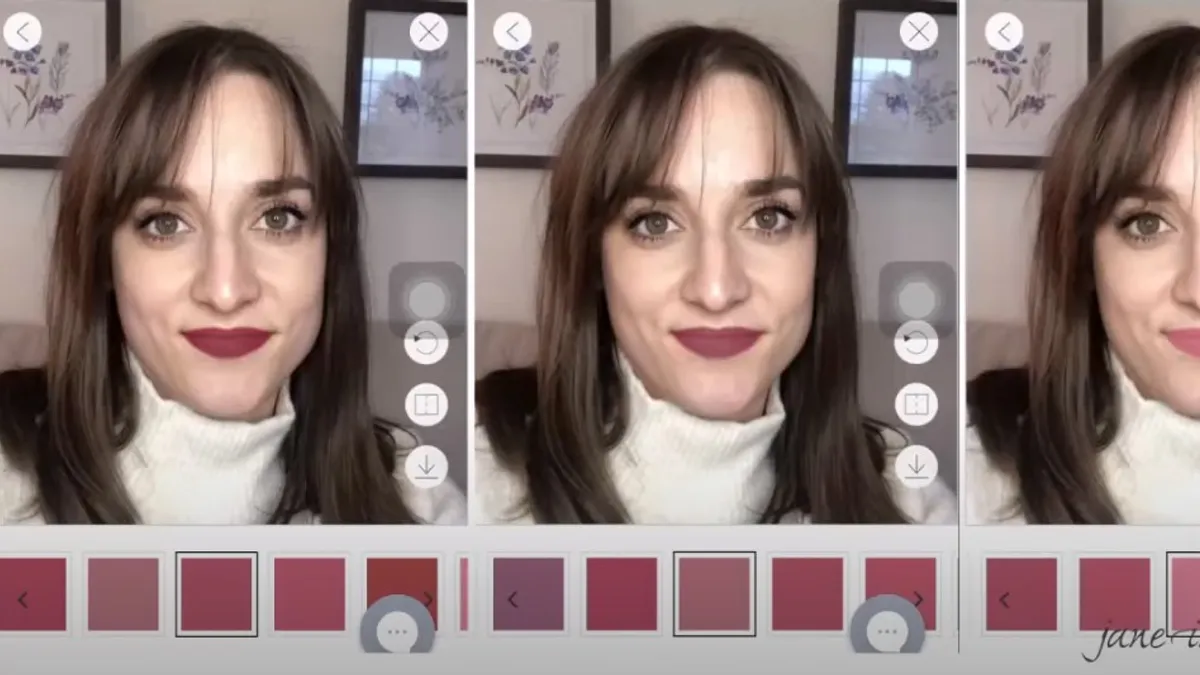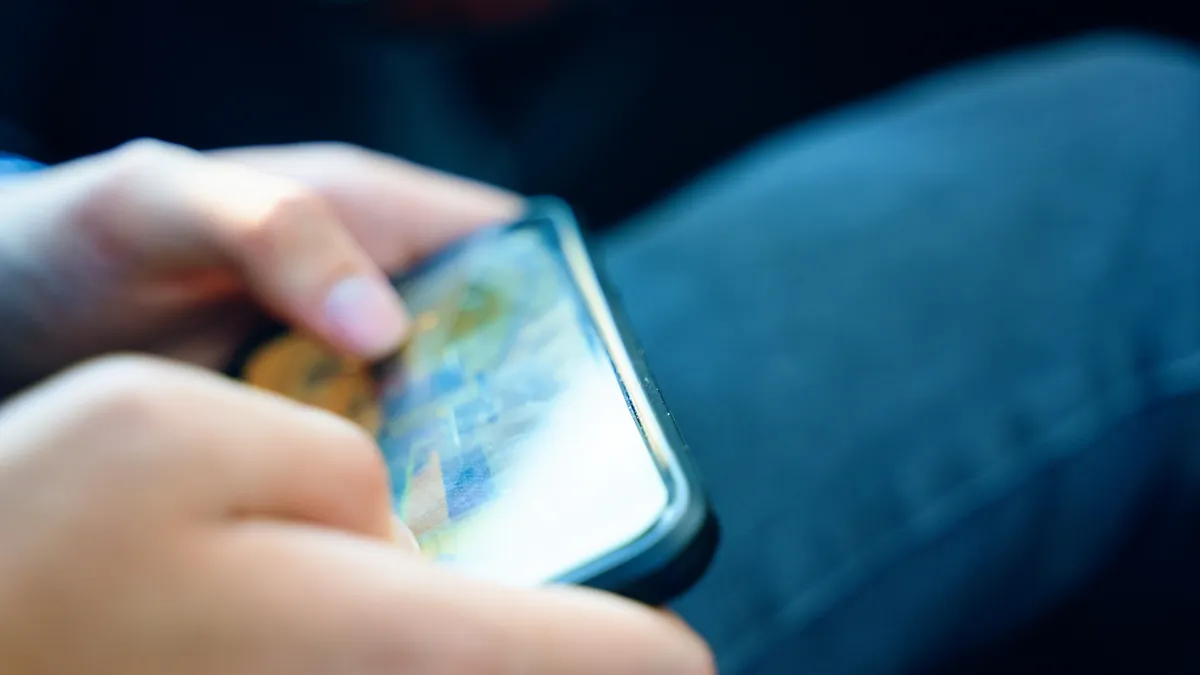Virtual try-ons of makeup have become indispensable to beauty brands in demonstrating their products to consumers outside a traditional in-store setting. Cosmetics brand Jane Iredale this year took its first step to combine augmented reality (AR) technology with its advertising to engage mobile viewers on YouTube.
The ad let people immediately try on shades of the brand's Matte Lip Fixation Lip Stain by swiping through a carousel of virtual samples. After first launching the campaign in March, Jane Iredale saw an 11% click-through rate (CTR), exceeding an industry standard by five times. On top of that, viewers spent an average of 23 seconds virtually trying on the lip colors.
"It was a combination of the creative and the newness for the consumer driving that action," said Ross Miller, vice president of digital at Jane Iredale. "But I was very pleasantly surprised that 11% of people who saw the ad tried on a shade. I feel like that's a win."
Blending AR into beauty ads
Jane Iredale's ad for its lip stain fused interactive AR technology with YouTube's TrueView in-stream ads that give viewers the option to skip forward to the video content after five seconds. The AR-activated ad saw a view-through rate that was 73% stronger than a non-AR TrueView in-stream ad, according to data provided by the company.
"Lips are much more of an eye-popping visual in general within makeup and virtual try-ons specifically," Miller said of Jane Iredale's choice of products to demonstrate. "It felt like that was a great product to use in the ad campaign."
The AR True-View boosted brand awareness 22% at a per-user cost of $0.38, which is considered an efficient price. YouTube two years ago introduced AR ads with a focus on beauty brands, highlighting Estée Lauder's MAC Cosmetics as the first to offer virtual try-ons of lipstick shades to viewers as they watched tutorials and product reviews.
Jane Iredale worked with Perfect Corp, the developer of AI technology for virtual try-ons of beauty products, on the AR activation on YouTube. Perfect, whose own apps include YouCam Makeup and YouCam Perfect, has a history of collaborating with beauty brands to virtually demonstrate lipstick, eye shadow, blush and hair coloring. Perfect this month published a report that said lipstick was making a comeback after it had dropped in popularity because of mask mandates earlier in the pandemic. It also has observed that sheer lip stick and lip gloss formats are trending globally as consumers seek makeup products that provide moisture and nourishment to the skin.
"We were in talks with Perfect on a relaunch before COVID happened," Miller said of the pandemic that significantly affected consumer habits and the beauty industry. "We asked ourselves about the changes in the landscape and what that meant, and so we went into the YouCam app in the summer of 2020, and then launched with Perfect Corp in March 2021."
Adjusting social spend
The campaign aligned with Jane Iredale's broader marketing objectives. Miller said his first goal within the brand's digital marketing strategy has been to introduce it to new customers, especially in categories like foundation that are distinct for Jane Iredale. It touts itself as one of the few brands approved by dermatologists, a key differentiator among rival beauty lines.
"Within categories like foundation, which we're known for, you want to find the right fit and have confidence in your decision. It's not an easy switch for the consumer," Miller said. "So, we really just jumped on the idea of using [AR] within our advertising. We had more success than I expected with the launch of virtual try-ons on the site."
"It was a combination of the creative and the newness for the consumer driving that action."

Ross Miller
Vice president of digital, Jane Iredale
Jane Iredale's campaign comes as cosmetics brands continue to experiment with new ways to engage consumers on their smartphones. Among more recent examples, Gucci Beauty and Nars Cosmetics this month were the first brands to try the new beauty feature on fashion game app Drest. Armani Beauty last month introduced Face Maestro as its first artificial intelligence (AI) service for these types of AR try-ons.
The digital marketing landscape is shifting as technology companies like Apple and Google give consumers more ways to guard their privacy, challenging brands to find other ways to reach target audiences. Paid social advertising has become less effective since Apple updated its software in April to ask iPhone owners for permission to be tracked online.
"We've seen the ROAS [return on ad spend] on paid social cut in half," Miller said. "So, we work very closely with our agency to rationalize that and look for new opportunities like doubling down in terms of our organic programs. We launched a nanoinfluencer program that's been really successful and exceeded our benchmarks across our organic social initiatives."






















